Seldom is one able to gain insight into the foreign policy issues and objectives of any grouping of nations through the mind of one of its leaders. Even rarer is one introduced to the analyses and assessments of a leader of the Gulf Cooperation Council (GCC). [The GCC is comprised of Bahrain, Kuwait, Oman, Qatar, Saudi Arabia, and the United Arab Emirates.]
Such is the occasion in this instance. The National Council on U.S.-Arab Relations is privileged to publish an address by GCC Secretary General Dr. Abdul Latif Bin Rashid Al Zayani. On August 24, 2015, Dr. Al Zayani addressed a capacity audience at Queens’ College, University of Cambridge, convened for the Sixth Annual Gulf Research Meeting (GRM).
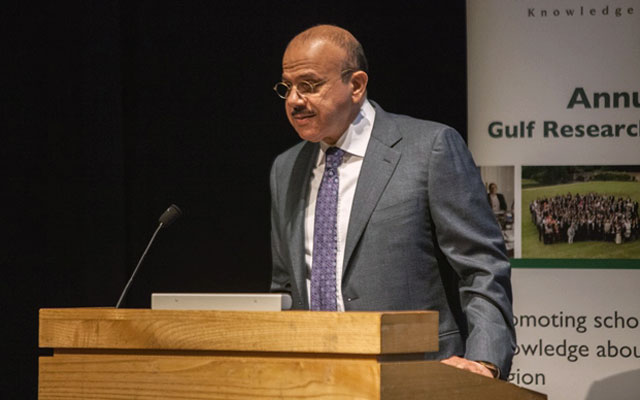
Dr. Al Zayani’s remarks covered a broad range of topics. Principal among his focus were the implications for regional peace, security, and stability of the extraordinary trends and indications confronting the GCC in the past year. These included the domestic and international dynamics of violent extremism, Iran, Syria, and Yemen, together with other issues and challenges as well as opportunities.
Dr. Al Zayani, a native of Bahrain, is the fifth head of the Riyadh, Saudi Arabia-based GCC Secretariat General. He has held the post since December 2010. He holds a doctorate from the U.S. Naval Postgraduate School in Monterey, California.
Of particular significance is that this was the fifth time for Dr. Al Zayani to address this annual meeting. The hundreds (fewer than twenty of whom were Americans) that he briefed and met with represented no ordinary assemblage. They encompassed what, by any standard, is the foremost yearly gathering of Arabian Peninsula and Gulf specialists known to convene anywhere.
Included among the international scholars, academics, researchers, analysts, authors, consultants, and other foreign affairs practitioners was a growing number of young researchers from the GCC region, Yemen, and Iraq, who represent the emerging generation of those destined to lead and manage the region’s future. Each of the participants came together this year, as on every previous occasion, for three full days of meetings, discussions, and debates. In so doing, beyond examining the present and coming state of affairs with regard to a virtual smorgasbord of topics, they also proposed and recommended solutions to some of the most vexing geopolitical, cultural, socio-economic, and foreign relations issues of the contemporary era.
What entices all who engage in the GRM’s exceptionally well-selected and choreographed seminars is their abiding interests and involvement in a variety of issues anchored in Arabia and the Gulf. This is the exact same focus of the National Council on U.S.-Arab Relations’ recently concluded academic seminar for its Annual Washington, DC University Student Summer Internship Program in association with 22 sister organizations and the Elliott School of International Affairs at The George Washington University. 25 interns, out of an applicant pool of 125 candidates, participated in this summer’s program.
None of the GRM’s presenters and other participants needed reminding of the extraordinary impact that this region has had and continues to have upon all of humankind. Nor, despite this, are they unaware of how the region’s peoples, cultures, economies, governmental structures, foreign relations, and systems of political dynamics constitute for millions worldwide the most often misunderstood and unfairly maligned of any on earth. Enter the Gulf Research Center, the GRM’s host convener.
The GRC, founded by Saudi Arabian Dr. Abdulaziz Sager, organizes and administers these Annual Gulf Research Meetings in association with Cambridge University. (The National Council entered into a Cooperative Agreement with the GRC this past year). No stranger to Washington, DC, Dr. Sager has addressed several National Council Conferences and Capitol Hill Seminars for Members of Congress, Congressional staff, media representatives, members of the diplomatic corps, and the broader U.S., Arab, and other foreign policymaking communities.
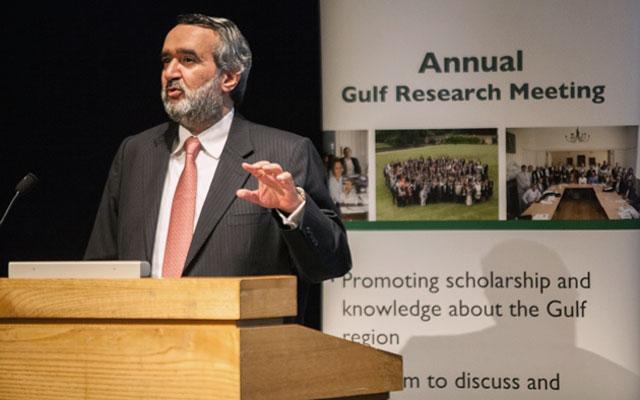
The GRC has catapulted into one of the foremost of its kind in a very short period. Based in Jeddah, Saudi Arabia, with regional offices in Geneva, Switzerland, and Cambridge, United Kingdom, the GRC, in addition to its association with the National Council, has partnered with dozens of research and academic institutions in virtually every corner of the globe.
By special arrangement with Dr. Al Zayani, the National Council is privileged to share this edited version of his remarks to this year’s GRM.
Dr. John Duke Anthony
Founding President and CEO
National Council on U.S.-Arab Relations
Washington, DC
“Envisioning the GCC’s Future: Prisms for Perspective”
His Excellency Dr. Abdul Latif Bin Rashid Al Zayani, Secretary General of the Gulf Cooperation Council
Remarks to the Gulf Research Center’s Sixth Annual Gulf Research Meeting at the University of Cambridge, Cambridge, United Kingdom
August 24, 2015
Dr. Abdulaziz Sager, Mr. Chairman, Distinguished Guests, Ladies and Gentlemen,
Thank you once again for giving me the chance to return for the fifth occasion to this beautiful city to say a few words about some of our common concerns. In preparing for today, I looked back at my previous four talks. Reading them showed me clearly how the global and regional situation has worsened. Old tensions remain. New challenges abound. Two things struck me. The first was the optimism with which I spoke in 2012 about Yemen and my hopes for success of the GCC Initiative. The second was the pessimistic tone of my speech last year. I called then for a total realignment of thought to break the cycle of regional instability. In seeking solutions, my parting words were “do not be afraid to think what in the past would have been the unthinkable.”
Then and Now
So where are we today? Da’ish (Arabic for what many loosely refer to as the “Islamic State”) continues as the single greatest challenge for us all. Syria awaits, amid unabated devastation and bloodshed, a solution. The stubborn violence in Libya is ongoing. The so-called Middle East Peace Process is all but dead. Uncertainties over Iran’s destabilizing ambitions linger. Yemen is in the throes of a serious conflict. Our region continues to be the single worst breeding ground for extremism and harboring terrorism. At the same time, it has become the greatest importer of foreign fighters. Add to this the steep drop in oil prices, which has done nothing to enhance stability. Not a happy story, is it?
And yet in a strange sort of way, within all these dynamics, “the unthinkable has been thought!” There has been a clarification on certain issues. For instance, the initial stages of a final agreement on the Iran nuclear program, which is probably the best possible political solution for this thorny issue, has been signed. The unlikely alliances countering Da’ish are bonding more closely. The full impact of extremism is forcing the global community into a more cohesive counter stance. Lastly, the situation in Yemen is worse in terms of violence than it was last summer, but at least something is being done about it. It is these topics – the macro implications of the nuclear agreement, Da’ish and extremism, and the micro implications of the situation in Yemen – that we will consider.
Iran
On the Iranian side, it has never been a secret that we in the GCC have always been wary of any agreement that is not inclusive and does not take into account what we and many others regard as Iran’s malign regional aspirations and its intrusions into other nations’ affairs. All of us should be concerned that such long held Iranian ambitions might prevail as greater financial resources become available to fund these activities. Of particular concern is that vested interests and the lure and benefits of trade may prove so tempting to international partners that sanction pre-conditions are weakened and eroded. Of course, we hope this will not occur and that the United States and others responsible for “locking back” sanctions will uphold their commitments.
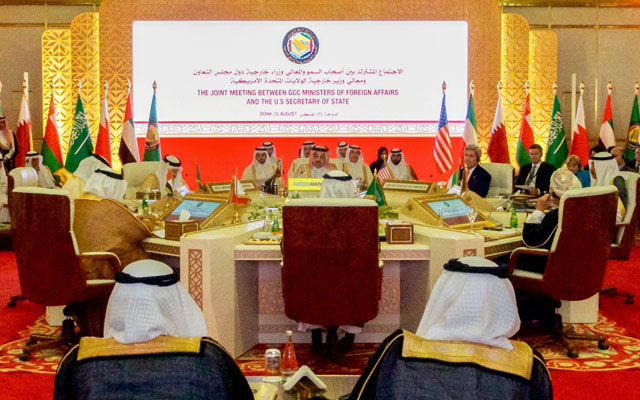
In order to reassure us on this issue and also to consider ways of enhancing cooperation, President Obama invited a top-level delegation from the GCC States to meet with him at Camp David last May. Most of you will have read the Joint Statement, which followed the meeting. More important is the Annex to the Statement, which articulates the details and provides guidance on follow-up procedures and ongoing consultation. We are reassured that all of this is happening. Moreover, the meeting of the GCC foreign ministers and U.S. Secretary of State John Kerry in Doha earlier this month reaffirmed their joint rejection of Iran’s support for terrorism and destabilizing activities throughout our region and affirmed their determination to counter Iranian interferences.
Nevertheless, the potential consequences have forced on us the necessity not only to think ahead but also independently. To this end, we have proceeded to continue formalizing relationships with regional partners in matters pertaining to defense and security. Also, within the GCC, we have taken measures to ensure that our joint capabilities and potential are maximized. Interoperability of doctrine, communications, and equipment is at the heart of our vision for security and stability. This is a sensible measure at any time but we feel it is of particular importance at the present moment as the power balance within the Middle East is being reshaped. There is nothing alarmist in what we are doing. Rather, we are preparing for the worst while working hard for the best.
Violent Extremism
Let me now turn to the question of violent extremism, which is possibly the greatest global and regional threat. This threat had its birth in the chaotic vacuum following the 2003 invasion of Iraq. It has been exacerbated and extended by the more recent civil war in Syria. The lawless spaces created in these two countries were soon filled with groups of varying loyalties and beliefs.
When the powerful Da’ish entered the arena, its forces swept existing governmental structures, institutions, and systems of law and order aside in the course of announcing itself in June 2014 as a worldwide Caliphate. Unusually for any extremist or terrorist organization, it also conquered and claimed land and then declared new so-called “boundaries” where there had been none before. To counter this threat, various alliances were formed of what, in the eyes of some, were unlikely allies, including, I am happy to say, the GCC.
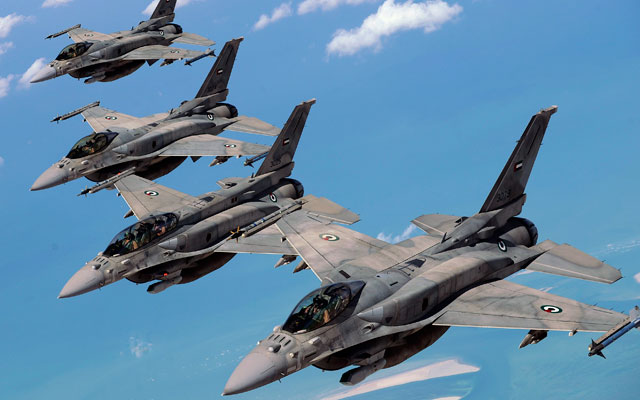
Reclaiming Da’ish territory will not be easy. Such things seldom are. But equally, I have no doubt that, as the various partners in the alliance increase the effectiveness of their coordination, Da’ish can and will be not only defeated militarily but ultimately expelled from its self-proclaimed home. Turkey’s recent entrance into the fight will make a large difference in undermining Da’ish’s support and curbing its recruitment activities.
Iraq and Syria
But what then? We will still have huge challenges to surmount. For instance, Iraq will have to devise a new constitution with provisions for a truly inclusive national government that accommodates all the components of the country’s people; the assertion of Iraq’s sovereignty in the midst of intrusive influences by its eastern neighbor; the prohibition of extremist sectarian discourse and identities; and the dispersal of rebel groups, to name but a few. It must be understood that the current threats were spawned and spread from the chaos following a previous military operation. We now need to ensure that chaos not recur in the wake of a successful military operation against Da’ish.
Further afield, in Syria the Assad regime’s days would appear to be numbered and it is only a matter of time – how much, no one can say for sure – before there will be some form of regime change. However, we need to be mindful that this in itself will cause complications. Consider, for instance, the competing interests of some neighboring nations. Whatever happens, a transitional phase will have to be closely linked to any military endgame concerning Da’ish.
The handling of these events needs to be considered together, not in isolation. It is not just that one will have to deal with the political ramifications of unlikely allies no longer having a single and common purpose. It is also that one will have no choice but to find solutions to the major humanitarian and reconstruction issues involved. One has reason to wonder – certainly I wonder – whether we are looking forward far enough and providing this matter the serious attention that it deserves.
Multifaceted Political Violence
While these are some of my thoughts regarding the military fight against Da’ish, one needs to focus on the equally serious challenge of multifaceted political violence. Physical borders and boundaries that have been erased or disregarded can be regained, strengthened, and defended. Land can be retaken. However, it is infinitely more difficult to cross over and regain people’s minds. I’m not talking about the mind of someone who is peaceful and law-abiding. I am talking about the minds of people for whom violent fanaticism, for whatever reason, has become ingrained.
[pullquote]The one thing that must be done is to find an effective and enduring way to prevent extremist indoctrination from taking place to begin with.[/pullquote]There are those who say that once such a mind-set is in place, it is almost impossible to change it – that an “idea” cannot be killed. I profess no expertise in thought processes. However, the one thing that must be done is to find an effective and enduring way to prevent extremist indoctrination from taking place to begin with. We must ensure that our citizens and particularly our youth not only learn right from wrong but integrate these principles into the way they live their lives. And we need to find a way to achieve this goal in a religious context as well as in a secular sense. Our education programs, peer pressures, and above all family upbringing must all come into play. Needless to say, it is easier to declare such a goal than to achieve it, but this is a priority for the GCC.
We must remember that those recruited are not solely from the poor or ill educated. Many recruits have university educations. Many come from Europe, America, Australia, and other so-called “First World Nations” in which they have been provided fair and meaningful opportunities for lives of dignity, commendation, and legitimate self-fulfillment. And yet they volunteer.
Consider the many recent violent incidents in the Western world, Australia, Africa, and Asia caused by homegrown extremism. The phenomenon is a disease that is about to run out of control. Each affected nation is doing what it can to lessen the dangers within and among its communities and borders – but they are “swatting mosquitoes” when what is needed most is to attack the breeding grounds. This is a task that we as Muslims – indeed only Muslims – can achieve. We continually say that extremist preaching is a fallacy, a misinterpretation of our faith, which bears no relation to the true meanings of Islam, and yet the creed, the ethos, and the beliefs of the extremists drive them to ever greater outrages. Surely, if we cannot “kill an idea,” we must do more to correct it.
But, as we think of ways to do this, it is vital that we cooperate closely. It is essential that we adopt a global approach to coordinating our ideas and activities. At last year’s GRM, I mentioned that Saudi Arabia has for many years held open the pledge of $100m to establish an international counterterrorism center. To this day, its offer has not been taken up, perhaps because of concerns over the sharing of sensitive information. But clearly an international focal point is needed for research regarding this phenomenon. It is essential for the exchange of ideas into the disruption of radicalization processes – how they occur, evolve, and, unchecked, harden over time. Mightn’t it be possible for such a center, if it were established, to pursue such a non-contentious position and role?
Yemen
Yemen is as good an example as any – and better than most – where one can proceed from the kinds of macro general contexts and perspectives, such as the ones I have offered, to a more specific and micro set of circumstances. I do so because I have been personally involved at every stage of the local, national, regional, and broader international efforts to bring an end to the turmoil that has roiled Yemen’s governmental structures and systems of political dynamics practically nonstop since the eruption of violence there in 2011.
On behalf of the GCC, this has entailed intensive and extensive engagement with the numerous countries that refer to themselves collectively as the Friends of Yemen (FOY). The GCC’s and FOY’s goal has been to do whatever is possible to deal with the unmitigated violence of Yemen as south Arabia’s version of the “Arab Springs.” That unfortunate nation and its 27 million people have become a microcosm of many of our current challenges.
First, a few words to bring everyone up to date are in order. Most are aware of the struggles prior to the GCC Initiative and the subsequent success of the transitional government to move forward the country’s political processes – so much so that the citizens of Yemen were only months away from adopting a new constitution and holding national elections. At that point, in the fall of 2014, destabilizing forces within Yemen (in many cases encouraged orally and with weaponry from outside) began to agitate. In the early months of this year a full-blown insurgency was raging, leading President Hadi and his government to take refuge abroad.
At that point, Saudi Arabia and an alliance of Arab and other nations began to back (mainly through the use of air power and the supply of military hardware) the legitimate government and its supporters. In April 2015, the United Nations Security Council (UNSC) passed Resolution 2216 under Chapter 7 of the UN Charter. The Resolution calls on the rebels to withdraw from all occupied cities and districts and that they surrender all stolen state weaponry.
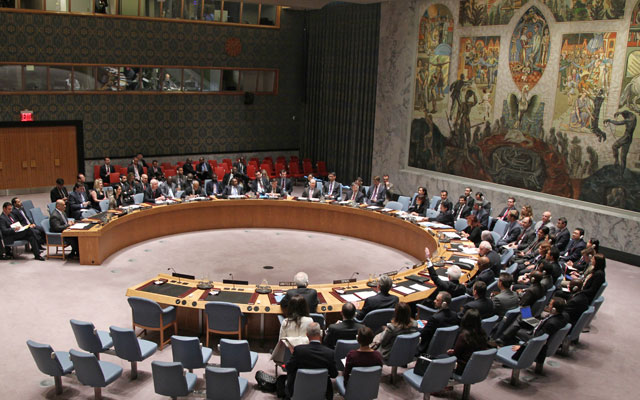
The Resolution also demands that hostilities be brought to an end in order to allow a Yemeni-led peaceful transition to resume – specifically, in accordance with the outcomes of the GCC Initiative and the National Dialogue, the latter itself being a result of the former. Since then, despite temporary ceasefires and half-hearted talks, the military situation has swayed backwards and forward, but now the legitimate government and the loyalists, backed by the Saudi Arabia-forged and -led ten-nation Alliance, are clearly in a dominant position – so much so that elements of the government have returned.
UN Resolution 2216 could not be clearer regarding the vital issue of the legitimacy of the ousted government of President Hadi and about the demand to end the violence – but so were preceding Resolutions that provided Yemen with reason to expect that the situation would improve through the establishment of an effective transitional government. But as they did not prevent a relapse, how can one be certain that the impact of this most recent Resolution will be any different?
My personal view is that the situation will stabilize. I believe the transitional government will resume its legitimate role. This time, however, the internal opposition, backed by the alliance of Yemen and its people’s true friends, will have a greater chance to succeed if it follows the democratic process. If it does this, external influences will find it much more difficult to succeed. An additional reason for optimism, however limited given the context and circumstances on the ground that will require a greater abatement than one has seen before, is that it is certain that our future approach will be far more proactive than in the past. Here again, I would like to think that any subversive foreign influence in Yemen will be addressed in the context of sanctions for one cannot continue to have UN Security Council Resolutions blatantly ignored.
Looking and Moving Forward
The common theme of my remarks throughout is proactivity combined with “Forward Thinking.” There are not many who would disagree that a lack of foresight coupled to appropriate action allowed the regional balance of power to shift so dramatically in the chaos following the aftermath of the 2003 invasion of Iraq. Arguably also, the GCC and the international community unfortunately took their “eyes off the ball,” which in and of itself contributed to the near disaster in Yemen. This must not be repeated.
One of course hopes that the Iranian Nuclear Agreement will succeed and will make the region a safer place. One also hopes that a post-sanctions Iran will use its augmented wealth for stability and not instability. Doing so should help free the region not just from nuclear ambitions and threats, but also from more conventional ones, too. Certainly, the GCC will cooperate with all parties and do all we can to ensure this happens.
Similarly, the endgame for the Syrian regime and the military defeat of Da’ish will definitely occur. It is not a question of whether but when. We must think now of how this transition should be managed while accommodating the various and conflicting interests. It cannot be left to chance. Doing so would risk the creation of another power vacuum.
Finally, and as important as anything I have said so far, we as Muslims, as our first priority, must be proactive and coordinate global activities that are forward thinking and imaginative in considering how to counter the extremist mind.
Thank you.
